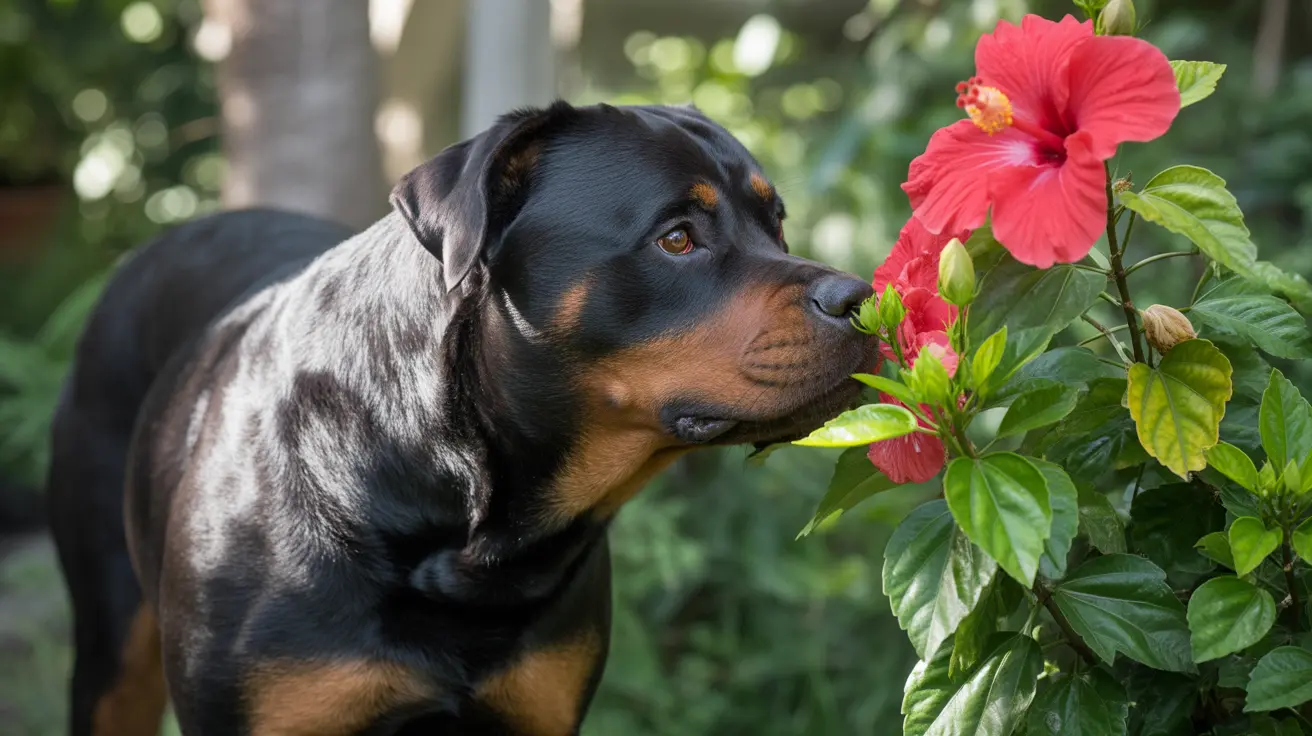If you're a dog owner with a beautiful garden or indoor plants, you might be wondering: are hibiscus poisonous to dogs? The answer isn't exactly straightforward, as different hibiscus varieties can have varying effects on our canine companions. Understanding these differences is crucial for keeping your pets safe while enjoying these stunning flowers.
In this comprehensive guide, we'll explore the safety of various hibiscus species, potential risks, and what you need to know to protect your four-legged friend. Let's dive into the facts about hibiscus and dog safety, backed by veterinary expertise and scientific research.
Understanding Hibiscus Plants and Dog Safety
Most common hibiscus varieties, particularly Hibiscus rosa-sinensis, are generally considered non-toxic to dogs according to the ASPCA. However, some species, like the Rose of Sharon (Hibiscus syriacus), can cause mild gastrointestinal issues if ingested in large quantities.
The level of risk largely depends on the specific variety, the part of the plant consumed, and your dog's size and overall health. While severe poisoning is extremely rare, it's essential to understand the potential effects and take appropriate precautions.
Signs Your Dog May Have Eaten Hibiscus
If your dog has consumed hibiscus plants, they might experience several symptoms, including:
- Mild stomach upset
- Vomiting
- Diarrhea
- Loss of appetite
- Drooling
- Mild lethargy
These symptoms typically resolve on their own within 24-48 hours, but it's important to monitor your pet closely and contact your veterinarian if symptoms persist or worsen.
Prevention and Safety Measures
To keep your dogs safe around hibiscus plants:
- Place indoor hibiscus plants out of reach
- Create barriers around garden hibiscus
- Remove fallen flowers and leaves promptly
- Train your dog to avoid garden plants
- Consider choosing pet-safe alternatives for indoor spaces
When to Seek Veterinary Care
While most cases of hibiscus ingestion are mild, seek immediate veterinary attention if your dog shows:
- Severe or persistent vomiting
- Bloody diarrhea
- Significant lethargy
- Difficulty breathing
- Signs of dehydration
- Excessive drooling or oral irritation
Frequently Asked Questions
Are all hibiscus plants safe for dogs, or are some varieties poisonous?
While most hibiscus varieties are considered non-toxic, some species like Rose of Sharon can cause mild gastrointestinal upset. The common Hibiscus rosa-sinensis is generally safe, but it's best to prevent your dog from eating any variety in large quantities.
What symptoms should I watch for if my dog eats hibiscus flowers or leaves?
Watch for signs of gastrointestinal upset including vomiting, diarrhea, decreased appetite, and lethargy. Most symptoms are mild and resolve within 24-48 hours.
Which parts of the hibiscus plant are most toxic to dogs, and how serious is the risk?
The roots typically contain the highest concentration of potentially harmful compounds. While flowers and leaves may cause mild upset, the risk is generally low and serious poisoning is extremely rare.
What should I do if I suspect my dog has ingested hibiscus and is showing signs of illness?
Remove any remaining plant material from your dog's reach, offer fresh water, and monitor them closely. Contact your veterinarian if symptoms persist or worsen, especially if your dog shows signs of severe distress.
How can I prevent my dog from getting sick from hibiscus plants in my garden or home?
Create physical barriers around garden plants, keep indoor hibiscus out of reach, clean up fallen plant material promptly, and train your dog to avoid eating plants. Consider alternative pet-safe plants for areas your dog frequently accesses.
Conclusion
While hibiscus plants generally pose minimal risk to dogs, being informed and taking preventive measures can help ensure your pet's safety. Most hibiscus varieties are safe to keep around dogs, but monitoring your pet's behavior and knowing the signs of plant ingestion will help you maintain a beautiful garden while keeping your furry friend healthy and happy.






